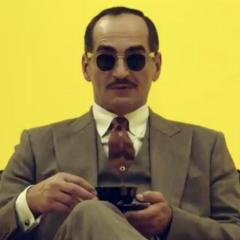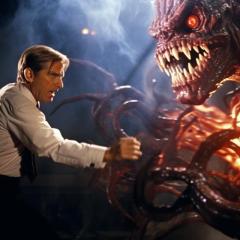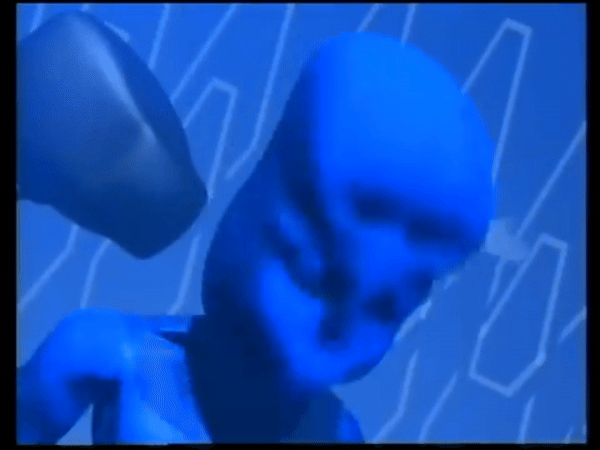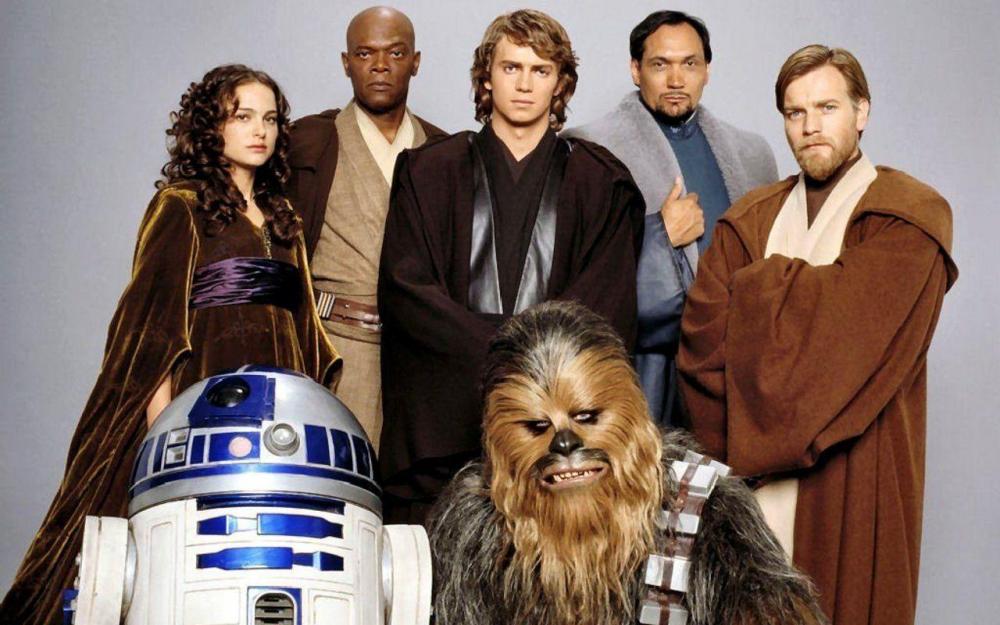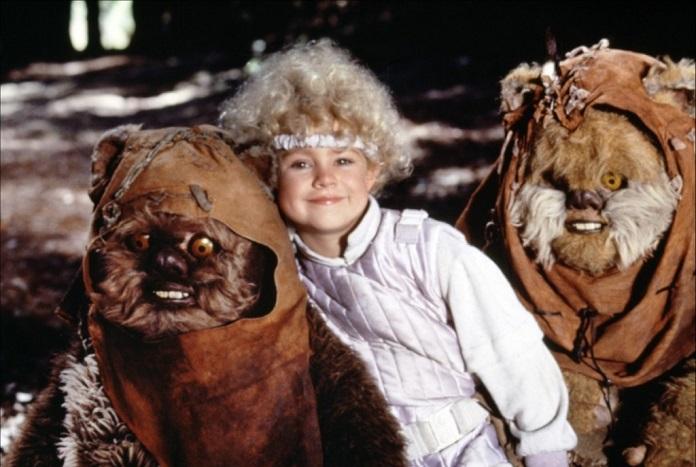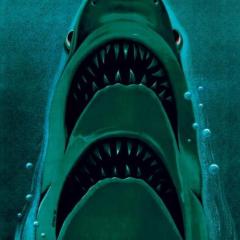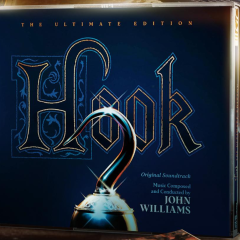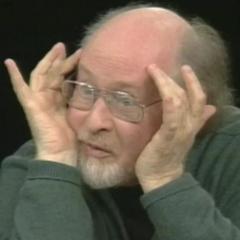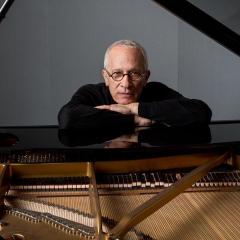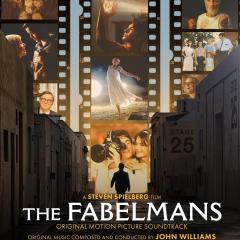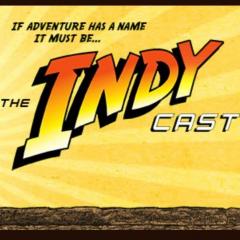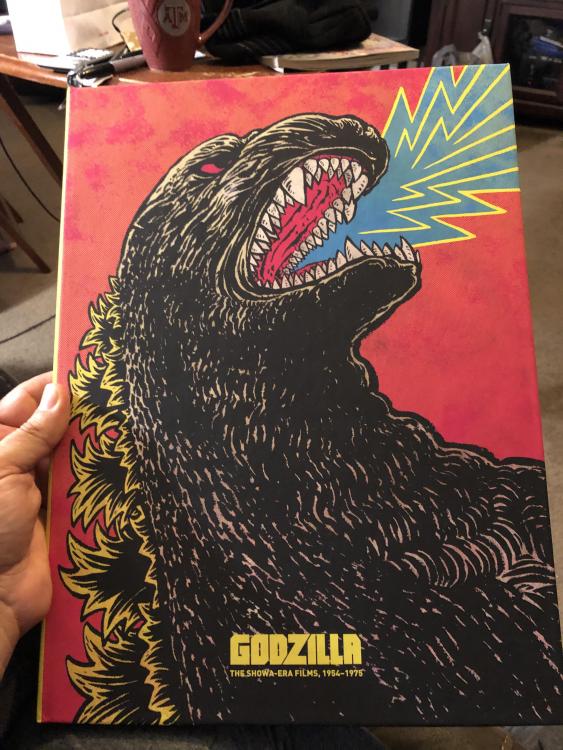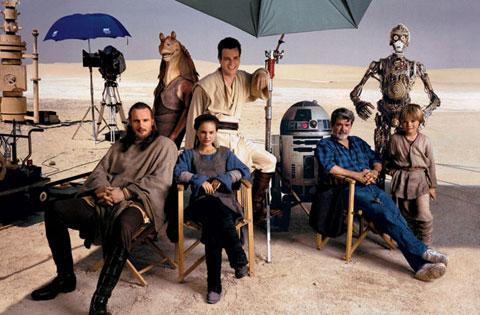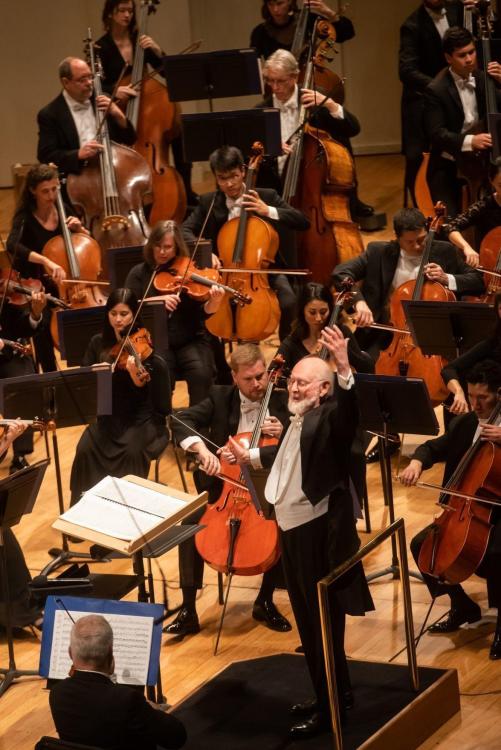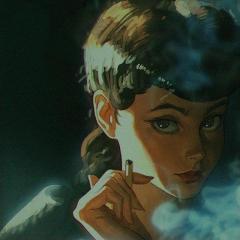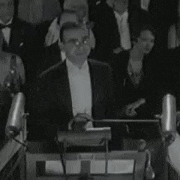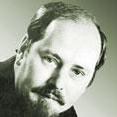Leaderboard
Popular Content
Showing content with the highest reputation on 04/11/19 in all areas
-
Fantastic Beasts And Where To Find Them 5-film series
bollemanneke and 4 others reacted to Disco Stu for a topic
I'm going to write JK Rowling a letter and title it "Fantastic Directors and Where to Find Their Agents"5 points -
4 points
-
I'm sure their haste to lock Johnson down had to do with not only their opinion of the movie, but also their very painless process behind the scenes (in fact, TLJ is thus far the only modern Star Wars movie to come together as planned).4 points
-
.
Sharkissimo and 2 others reacted to Disco Stu for a topic
Gonna split my "musical ideal" into two paths, but both basically have similar ends of getting at a feeling of transcendence/being transported, spiritually. The final movement of the Escapades (Catch Me If You Can) suite which has this incredible rhythmic vitality, imaginative orchestration, a sense of grandiosity, and its own internal dramatic logic where it feels like every note/section must follow the previous one to tell the musical narrative (aka la grande ligne) "The Peterson House and Finale" which has a simple but not simplistic sense of reverential awe and existential contemplation. That Lincoln inspired combination of both homespun and classical. Also especially for this being an end credits suite, it like the above track achieves its own internal musical narrative in a way that goes beyond just summarizing themes featured in the score.3 points -
The Lost World, simply because I didn't notice or really care for the score until the LLL release. Now it's some of my favourite film music and most played in the last three years since its release!3 points
-
So, so many but probably the one that always connected the most with me viscerally was Clash of the Sabers (aka The Duel) from ESB. First the high clusters opening which is VERY JW. It's one of those things that in two seconds, I know it's JW. Then probably the most sinister version ever of the Empire. I feel this cue is so full of desperate loss, crushing defeat, mixed with hope and yearning plus superb playing by LSO! Struggle, hope, and villainy in extremes. The absolute precision of the brass section is stunning. I told David Cripps this and after a pause he responded with a childish smile, "Damn, we were good." But musically it is so freaking sophisticated, chorals, fugato, atonality, clusters, harmony, bold lyricism, etc. JW was firing on all cylinders. It just builds and builds in emotion and intensity and is probably the cue I've always compared his very best moments to. It ends desperately distorting the lyrical melodies almost to their breaking point but the goal is out of our hero's reach and the music so perfectly captures this. But I remember hearing it in the theater for the first time in 1980 as a kid and it is permanently etched in my memories so it's very possible part of my adoration of this is the special memories. I think what also makes it so effective is before and after we get such great dramatic music with the Carbon Freeze and Losing the Hand. Though you only asked for one, I'll cheat and say Asteroid Belt is honorable mention. Maybe E.T. flying - the first time "the Theme" comes in big. There are so many examples but those were some special call outs.3 points
-
'Everyone' being a very vocal minority of of dubious standing.2 points
-
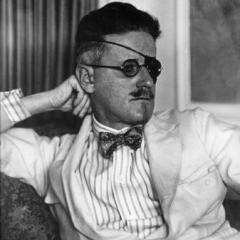
Fantastic Beasts And Where To Find Them 5-film series
bollemanneke and one other reacted to TheUlyssesian for a topic
https://www.wizardingworld.com/news/the-third-fantastic-beasts-film-confirms-new-details-including-cast-members-and-location This is public admission of defeat from Rowling. Of course she wanted to be a screenwriter and the relative failure of Grindlewald means that her solo screenwriting career is probably at an end. Or it will atleast get more scrutiny. This is a suits decesion. WB absolutely mandated Kloves in all likelihood to greenlight FB3. I think the verdict was clear - the reviews all panned the script. I think everything else was there - the design work remains exquisite, the score is outstanding, the actors are all good, the direction is competent. What tripped them up in part 2 is the horrible script. It was Rowling getting complacent that she delivered a solo screenwriting hit with an original screenplay with FB1. But you have to always remember that you cannot take the audience's attention for granted. The audience is smart. Honor them. Give them something good. Don't half-ass it. Marvel movies do this consistently, that is why people come again and again. Kloves is a good sign. Rowling is of course a good writer, no question about it. But screenplays are in some ways a more challenging medium.2 points -
The Phantom Menace2 points
-
2 points
-
If it was just one film, why not. I don’t know why everything has to be a trilogy, or why they were so confident in RJ making some smash hit 3-part blockbuster epic when his first Star War hadn’t even come out. They must have been hoping/assuming Last Jedi would serve as a proof of concept for audiences, like everyone would just be demanding more from Rian Johnson in droves...I’m not really sure why, and I think the movie is pretty good.2 points
-
I was into The Last Jedi a lot and would love to see Johnson do something different with Star Wars, but I'm not banking on this happening either at this point.2 points
-
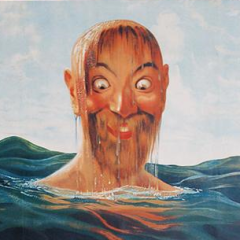
Which JW score contains the best expanded/unreleased material?
Smeltington and one other reacted to Holko for a topic
Most of them. But in a lot of cases it's not just the individual highlights but the whole presentation, experience and structure that make complete scores heaps better than their OSTs.2 points -
2 points
-

Plagiarism or Inspiration?
_deleted_ and one other reacted to BLUMENKOHL for a topic
2 points -
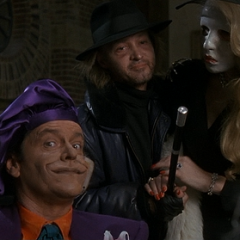
Game Of Thrones Showrunners tackle Star Wars.
Pieter Boelen and one other reacted to Gruesome Son of a Bitch for a topic
It's a decent guilty pleasure flick with a good cast and lots of memorable lines. The asteroid scenes start to drag a bit, but the part where Bruce Willis puts Ben Affleck back on the ship and says he loves him always gets me for some reason.2 points -
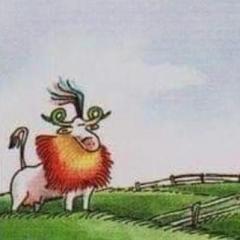
What Is The Last Score You Listened To? (older scores)
Jules and one other reacted to The Illustrious Jerry for a topic
It's that time of year again- time for another John Powell Palooza! Rio by John Powell Very pleasant, albeit one of his lesser works. It can be subdued at times, at least in comparison to other scores, but it's a solid album and fun to listen to. How To Train Your Dragon 2 by John Powell One of Powell's many home runs, building upon it's predecessor to great effect. His theme-crafting abilities are at their heights in this trilogy. It's amazing how consistently awesome he remains over the course of three films (and the movies are some of the best animated films of this decade). Ferdinand by John Powell Another out-of-the-park hit. There's not a single disagreeable note in Madrid Finale, for starters. The entire score is just mindbogglingly good. Powell is one of those composers who gives it his all for these casual animated projects, and that is immensely admirable. Hubris: Choral Works by John Powell Somebody stop me. Now 10 times in the last four days I've listened to this album. I had tried to start it when it first came out but couldn't get into it. I now realize that I should've tried again much sooner- it's one of my biggest muses since Solo: A Star Wars Story (also Powell- coincidence? I think not). There's so much I could say, but I'd like to take time to culminate my thoughts. I'll probably post something in the review forum. Across the Stars by Anne-Sophie Mutter and John Williams Gorgeous. It's a lot of violin on one album, but @Bespin has a great playlist for spacing things out with the Dudamel album as well. Loving Rey's Theme, Sayuri's Theme, Theme from Sabrina, and the title piece, naturally. Wonderful interpretations.2 points -

The Mandalorian SHOW discussion - Spoilers Allowed for all aired episodes
Edmilson and one other reacted to Gruesome Son of a Bitch for a topic
2 points -
In an October survey conducted by the BBC, with responses from top composers such as John Williams, Steve Reich, John Adams, Eric Whitacre, Danny Elfman, John Corigliano, Michael Nyman, Carl Jenkins, Gabriel Yared, and 165 other major living composers today, John Williams tied Schumann and Rachmaninoff for 50th place in the Greatest Composers of all Time, surpassing many of the biggest icons in music history. Each participant was required to vote for the 5 best in history, and the results were totalled and ranked. Williams didn't vote for himself of course, but voted for Bach, Beethoven, Brahms, Haydn, and Mozart. Someone posted about this survey earlier today, but the headline was only about Williams's picks. Not quite proper for this forum: Williams surpassed many of the greatest names in perhaps the biggest modern professional survey on Classical ever done, something for the books! All top 50 composers were written about in the article by some of the composers who specifically selected them. It is a magnificent article to read and absorb. Here are the Top ranked 50 as posted in the BBC article: 1. Bach2. Stravinsky3. Beethoven4. Mozart5. Debussy6. Ligeti7. Mahler8. Wagner9. Ravel10. Monteverdi11. Britten12. Sibelius13. Messiaen14. Bartók15. Shostakovich16. Haydn17. Saariaho18. Brahms19. Reich20. Chopin21. Vaughan Williams22. Schoenberg23. Gesualdo24. Janáček25. Schubert26. Gershwin27. Glass28. Ives29. Prokofiev30. Lutoslawski31. Cage32. Tchaikovsky33. Berg34. Feldman35. Varèse36. Webern37. Byrd38. R.Strauss39. Verdi40. Elgar41. Birtwistle42. Knussen43. Sondheim44. Stockhausen45. Satie46. Tallis47. Hildegard von Bingen ________________ Each receiving the same number of votes: 48. Boulez49. Schumann50. Rachmaninov 51. John Williams Interchangeable rank _______________ Congrats Maestro, on making the Top 50! An article on the BBC Survey in Dec 2019's Magazine: http://www.classical-music.com/news/js-bach-greatest-composer-all-time-say-today-s-leading-composers-bbc-music-magazine Dec 2019 BBC Issue with full article purchasable here: https://www.zinio.com/gb/bbc-music-magazine-m24041 point
-

The Official La-La Land Records Thread
Yavar Moradi reacted to Dr. Rick for a topic
JFK has also been mentioned a few years back, right?1 point -
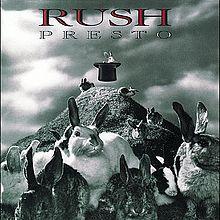
.
Fabulin reacted to Naïve Old Fart for a topic
Geez, Louise, how many are there?! First of all, I thank you @Modest Expectations. I'm flattered that you included me, in your original list. "Musical ideals" is not a concept that I'm familiar with, or, at least, not a concept that I pay much attention to, nowadays. As a younger man, there was a particular rock band, on whose every note and word, I hung. As one gets older, however, one tends to move on from what once excited one, while still retaining - one hopes - a fond regard for what influenced one, all that time, ago. In the case of JW, my tastes in his output have changed considerably, over the years. What once had me swooning, now has a nil-to-negative affect on me. Conversely, scores - and individual cues - have, sometimes "crept up" on me, taking me by surprise, in their relevance to my contemporary situation(s). That being said, the two pieces that seem to sum up where I am (certainly emotionally) at present, are WAKING UP, and A SECOND CHANCE. The former says a lot about me, physically. It's slow, but stately. It's dignified. It signifies the end of an era; a death (don't worry; I'm not going anywhere, soon). The latter, on the other hand, is full of exuberance, joy, and hope, for the future. It says: "Yes, it can happen, to you!". I'm able to hold both in tension. I hope this answers your question?1 point -
He was his usual genial self in a conversation with Justin Freer. He related a few nice anecdotes about writing the score, saying that he had written most of it at his holiday home in France. He talked about how he had struggled to come up with something suitable for the Hogwarts brass band music, Mike Newell rejecting his early attempts because they were not quite 'quirky' enough. By chance he was with his family at a restaurant in France when a local brass band came in to entertain the diners - he suddenly realised what he needed to do and asked the waiter for a napkin so that he could scribble down his ideas! He explained that the brass band music therefore has a bit of a French flavour to it. Interestingly, he said that he felt more comfortable writing music for film than for the concert hall, feeling that film music was his métier. It was also his idea that the Bulgarian Durmstrang boys should enter the hall banging staffs on the floor rather than carrying wands and noted that the music he conceived (with the drums punctuating each strike of the floor) ended up in the film exactly as he had written and recorded it. He joked that he did not know anything about Gandalf at the time and knew he had made the right decision because one of his sons told him, "Dad, that's really cool!" He also talked about having some difficulty coming up with one of the waltzes (it might have been the one for Neville, I cannot quite remember) and ended up writing it in a taxi on the way to a meeting with Mike Newell, before singing it to the director to great approval. He also talked about how he approved of all the musical decisions that Mike Newell had made, which is not always the case when he watches back the films he has scored. For example, he had written some music for the scene early in the film when Harry sees the skull in the sky after the Quidditch World Cup. He agreed with the director's decision to drop the cue in question, appreciating that the scene worked better without music.1 point
-

Fantastic Beasts And Where To Find Them 5-film series
bollemanneke reacted to Bilbo for a topic
It will have to be strongly worded. You’re at nothing unless it’s strongly worded1 point -
Really hope we get this for BF, despite MV's comments about disappointing a bunch of people (perhaps he means those that already spent good money buying the flawed earlier expansion)1 point
-
Oh sorry I never answered that. The performances are mostly fine although Rebecca Ferguson's character felt bit laughable to me. She was great in the M:I films but she makes for a really corny villain (both here and that kid King Arthur film from earlier this year). There are some good ideas in there (small things like single images or scenes) but the thing as a whole just didn't work for me. The world that King creates in his books (none of which I like) is very "literal" and down to earth whereas The Shining by Stanley Kubrick is a highly stylised and surreal film that expresses its ideas purely by visuals and sound design. When you put the latter into the former it just doesn't feel quite right. If you have that highly visceral nightmarish ghosts from the 1980 described as "creatures that are this and this and are after so and so" it just makes it really jarring and robs them of any power. You don't need elaborate mythology of the world and explanatory exposition to make it frightening. In fact that sort of makes it all really flat and sort of like a fan flick. I loved the ambiguity in films and Doctor Sleep absolutely kills any sign of that. Another thing is that I'm not really a horror person. I'm quite anxious in real life and don't particularly enjoy watching people die in horrible ways on screen. Having said that, I have found myself falling asleep watching this. I might have actually missed some of it, can't be too sure. I wasn't tired going in, it was mid-day as well. But there simply was no tension to keep me interested. And it all looks like a cheap Netflix film too with very dull colour palette. And there are some really awful TV-like CG visual effects in this. And it is also mercilessly long. As I said above, I never enjoyed anything from Stephen King much (with very few exceptions). But it seems his books are popular for some reason and they speak to a lot of people. So I bet a lot of people will disagree with me. And that's ok. But with this film is getting such a strong response and The Lion King remake earning $1.7 billion dollars I don't think there is much hope for mainstream cinema. Low-budget films like Midsommar are probably as good as popular films get, from the filmmaking perspective. Was it the most horrible thing I've ever seen? No, of course not. It was just desperately average and unremarkable. Karol1 point
-
They get announced in an email that goes out 12 hours beforehand1 point
-
1 point
-
1 point
-
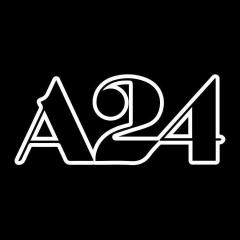
Your current audio equipment..
Naïve Old Fart reacted to A24 for a topic
Conservative radio: "The government wants to enslave us and sell us to the Chinese. We must unite and prepare ourselves ..." Drax: "Mmmm, lovely channel."1 point -
Alex, you have to post pics like that inside a spoiler (eyeball icon) box and with a NSFW warning. Many of us read this forum at our jobs from our work computers. Thank you.1 point
-
If Holkenborg scores Avatar 2 then Cameron has completely lost his mind. I would've thought he knows well enough the importance of a symphonic, classically-trained composer following in Horner's footsteps, given the established musical palette from the first film. I also think JC is smart enough to understand the state of modern film scoring and probably considers the RCP sound fit for the likes of a Terminator or Battle Angel film but not something organic like Avatar.1 point
-
1 point
-
1 point
-
If I were to recommend someone to watch the Terminator series, I'd tell them to watch 1 and 2 and then that's it. The franchise has been broken ever since T3.1 point
-
Plagiarism or Inspiration?
Dixon Hill reacted to KK for a topic
Ooph. This thread reeks of Neo-neo JWFan...1 point -
A Hidden Life - JNH I've come to appreciate more this score after listening to it a few times. The delightfully folksy main theme is a direct relative to The Village, "The Healing" from Lady in the Water and "The Strawberry Fields" from Snow Falling on Cedars, but it's not all that present. Much of the score uses the solo violin and the strings to illustrate harsh living conditions, like he did on Defiance, parts from The Hunger Games and Catching Fire, and the Credence music from the first Fantastic Beasts - it's impressively done, but it's not exactly easy listening. On the other hand, he manages to find hope in amidst the darkness, on beautiful tracks such as "Return", "Hope" and "Knotted". I'm curious to watch the movie, and also for the official OST, which I imagine it will be a more cohese listening experience. The FYC lacks an end title suite or something to sums up the musical ideas presented here. Snow Falling on Cedars - also James Howard Newton First time I've listened to the album in a long time. It's a weird combination of electronics, Japanese instruments, solo cello, solo violin, choir and a string section, that somehow manages to create an atmosphere - a dark, depressing atmosphere. "The Evacuation" is a highlight, a sinister and dark track that I remember working perfectly on the movie, and "Tarawa" contains JNH's best choral writing of his career - if he doesn't get to the epic heights of this track when he scores the legendary magic duel between Dumbledore and Grindelwald, I'll be seriously disappointed! The beautiful, hopeful and emotional ending of the score compensates the darkness that precedes it, with "Snow Angels" and "Can I Hold You Now?" being some of the most touching music he's ever written. In any case, he should be scoring these romance/drama movies more, along with all the fantasy blockbusters.1 point
-
Like @karelm, I have a ton I could choose here, but I'll pick these two: The quasi-fugal stuff here (and earlier) is just incredible: Puts a very old musical art form into a new action context. I love JW's action writing in general. Second, the pure exuberance of this piece is one of my favorite sounds, and some of the chords are just perfect:1 point
-
Yes, I have it. I am still doing my usual clean up on the audio and breaking it into tracks (removing long pauses, promotional spots etc, adjusting volume). I did listen live as well, and then I listened to the raw capture (and most of the concert) on my long run today. Overall, I really enjoyed the performance of the Williams' concerto as well as the others (Barber's Adagio, Saint-Saëns Organ Symphony + 2 encores from soloist James Ehnes). I want to go through the concerto again and really focus on the violin playing and how the orchestra is working with (and at times purposefully in counterpoint). A nice treat of the concert broadcast was that the intermission featured interviews with Stéphane Denève (conductor), Beth Guterman Chu (principal viola) and Ehnes. They all shared some insights of working on the piece (which Ehnes has only played with Denève conducting) and that John Williams came to the entire rehearsal of the piece. He however did not seem to be in the audience last night, so this was even more gracious given he was not going to be present to hear the final output. He spent time together with Ehnes as well 1:1. Multiple people mentioned the timing of the concerto's composition with Williams' late wife, Barbara Ruick, and her tragic passing in 1974. Here is a link to the program notes for those interested. https://www.stlpublicradio.org/programs/symphony/docs/20191102 - Saint Saens Organ Symphony.pdf1 point
-
Maybe crocs thinks that was bad too. Don't give up just yet! Probably but there are so many movies with good performances. Don't you want something more?1 point
-
Update from MV, guess we should curb our enthusiasm? Or trying to throw us off the trail? https://www.filmscoremonthly.com/board/posts.cfm?forumID=1&pageID=4&threadID=138168&archive=01 point
-
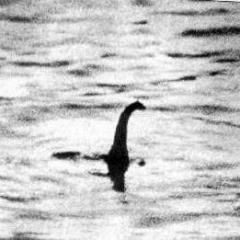
Godzilla: The Showa Era 15 disc blu-ray set
Nick Parker reacted to Ollie for a topic
1 point -
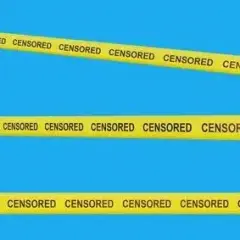
Williams to co-conduct St. Louis Symphony, November 1
tmarps reacted to Jurassic Shark for a topic
Nobody dislikes JW's music as much as JWFans.1 point -
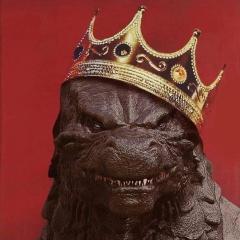
The Mandalorian SHOW discussion - Spoilers Allowed for all aired episodes
Edmilson reacted to Unlucky Bastard for a topic
1 point -
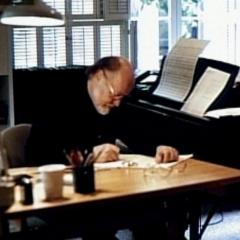
Williams to co-conduct St. Louis Symphony, November 1
Smeltington reacted to Montre for a topic
1 point -
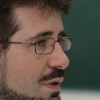
Who is coming to Vienna?
WilliamsStarShip2282 reacted to Miguel Andrade for a topic
I'll be there on both dates.1 point -
1 point
-
In twenty years of JWFAN nobody's ever raised this before here, nope!1 point
-
I wish to inform you kindly that you are trying to teach hardcore John Williams / film music nerds, many with multi-decade experience, some being musical professionals, trivial, discussed to death observations about obvious inspirations behind some of the most popular moments in his music. Calling Williams a plagiarist or accusing him of low morals or professionalism is a good way to make yourself look foolish around here. Use the search function of the forum and you will find more than you can possibly imagine that has been said on that and any other topic. Other than that: Welcome... to JWFan1 point
-
I couldn't find a link on Youtube, so I had to resort to Spotify, which is less than ideal because not everybody has access to Spotify. But I wanted to get at least some people to hear the reference. That comment was more tongue-in-cheek really, because I was just trying to point out that Williams may as well have been thinking more of Kennan than of Stravinsky when writing The Dune Sea of Tatooine. After all, the album on which that recording was presented was released in 1959 and it's not impossible that Williams, being the Howard Hanson fan that he is, listened to it at some point! Anyway, that "floating chords" motif which people keep attributing to Stravinsky's The Rite of Spring (as if Stravinksy was the inventor of it and Williams "stole" it from him) did not start with The Rite of Spring anyway. It is certainly at least taken from the introduction to Debussy's Nocturnes: Now, Nocturnes was published in 1900, and we know that Stravinsky knew and studied Debussy. This is very evident in the beginning of Stravinskly opera Le rossignol, which he started working on in 1908. The strings chords in the beginning are strikingly similar to that of the clarinet chords at the beginning of Nocturnes. There are other similarities throughout the opera with Nocturnes. Stravinsky did not borrow that Nocturnes passage in quite the same way in his next ballets, though elements can certainly be traced. For example, the beginning of his Firebird has a similar feel to the Le rossignol intro (muted strings playing "rhythmically straight" notes) which in turn can be traced back to the Nocturnes. Oscillating chords feature prominently in the final tableau of Petrushka. And finally, of course, in the second part of the Rite of Spring, which is what everybody compares The Dune Sea of Tatooine with. The point I'm trying to make is, this sort of "plagiarism" does not finish at any point. People who do not know any better see a video on Youtube accusing The Dune Sea of copying Stravinsky's "The Rite of Spring", without considering that the situation is more complex. I propose that Stravinsky himself should be accused of a great deal of self-plagiarisms, as well as the Le rossignol introduction being a blatant rip-off of Nocturnes. Because had Williams written that intro as part of a film score instead of Stravinsky, you can be sure that there would end up being a multitude of Youtube videos comparing that and Debussy's Nocturnes, with the comments filled with plagiarist experts denouncing Williams as a "hack". So why shouldn't Igor get the same treatment? I mean, if you want another case of Stravinsky the plagiarist, have a listen to the Infernal Dance of Katschei from The Firebird. It sounds inspired by the Sabbath of the Infernal Spirits, written by Stravinsky's teacher Nikolai Rimsky-Korsakov. But nobody in the classical music scene seems to care. Yet, had Williams composed the Infernal Dance of Katschei instead of Stravinsky, you can bet that people on teh internet would be on his tail before you could say "temp track". Of course, I don't really believe that Stravinsky should be vilified for plagiarism. He obviously borrowed stole some ideas from other composers (e.g. he admits that when writing the Symphony in C, he had the scores of Beethoven symphonies open on his desk which he used for inspiration). But his musical genius was able to turn these ideas into something unique and that had never been thought up before. At the end of the day, no composer works in a vacuum. They always have some influences. But in Williams' case, there is too much attention being paid to what the influence was, rather than what he does with it. From what I've heard of Williams, he has never out-right copied another composer's work. The first 5 seconds may sound similar and inspired, but then he always goes off in another direction. And if a portion does sound very similar to another composer's work, there is usually a reason behind it, for instance the big "Mars" chords in the SW main titles which are supposed to connote war. (And even then, didn't Holst kinda rip off Mahler?).1 point


